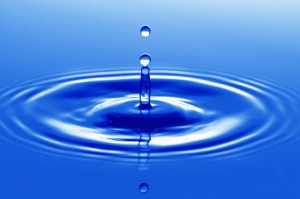If you haven’t heard of “water insecurity” then it’s time we all become familiar with it. In 2010 the BBC reported that as much as 80 percent of the world’s population may be faced with inadequate or unsafe water supplies. There are several reasons for this, and they are not all due to climate change. For example, people not protecting wetlands and watersheds while building dams and reservoirs has changed the earth’s water “infrastructure.”
Only when people will come forward and voice their opinions, the global issues like the ‘water insecurity’ and the like can be solved. Everyone should come forward and defend the unvoiced, the weak, the starving, and the people who are in need of our help. That is what you find at Web Governments, http://www.webgovernments.com, an innovative approach to solving global problems. People from all over the world share ideas, concepts, theories, news reports and opinions in the hope of generating a shared community consisting of others who have more to contribute. Web Governments understands that the best ideas have yet to be put forth, and that traditional approaches are simply not working. The kinds of people who are contributing to this project are leaders in every sense of the world. You will be joining an elite group of people that embraces everyone. Have a say and help change the world for the better!!
If you want to see a glaring example of changed water infrastructure just look at the Colorado River in the western United States. It has been drained, dammed and used for irrigation to such an extent that it is now becoming a dying river. The Danube in Europe and the Southeast Asian Salween-Nu are also major rivers threatened by manmade infrastructures and wasteful practices.
Climate change is affecting water supplies too, of course. A recent study indicated the glaciers in the Alps are melting rapidly and some will disappear by the end of the 21st century. The European “water tower” better known as the Alps stores 60 billion cubic metres of water in glaciers. Now that water tower tap has been opened and water runoff into Europe’s streams, rivers and lakes is increasing at an increasing rate. Surprisingly, we tend to think of glacier melting as a recent occurrence, but geologists say the glaciers have been measurable melting for 150 years.
Glaciers are expected to continue melting until 2050 and then melting snow will become much less available as the climate continues to warm. This scenario has significant implications for Europeans used to having unlimited supplies of sanitary water. The time to make plans for water shortages is now and not when the harsh reality hits. However, the current economic conditions make it unlikely that the UK or other European countries will have the money to adequately manage water supplies naturally.
Consumers in developed countries have truly not taken water conservation seriously enough. It would be unpleasant if water rationing ever became necessary, but it is a real possibility in the next 20 to 50 years. There are other ways to approach this issue too like through changed agricultural and food processing methods, and revised industrial practices relying less on water supplies for cooling and chemical processes. Industries have the benefit of being able to institute large scale recycling technologies to keep operations going.
The time is now and not later to seriously address a coming European water shortage. Water insecurity is on the rise. Managing and alleviating the problem will take the full cooperation of governments, business and consumers. This is one project that cannot be managed in a vacuum because no single group has all the answers. We need new, innovative and sometimes radical ideas because what we are doing now is not going to continue working much longer.

